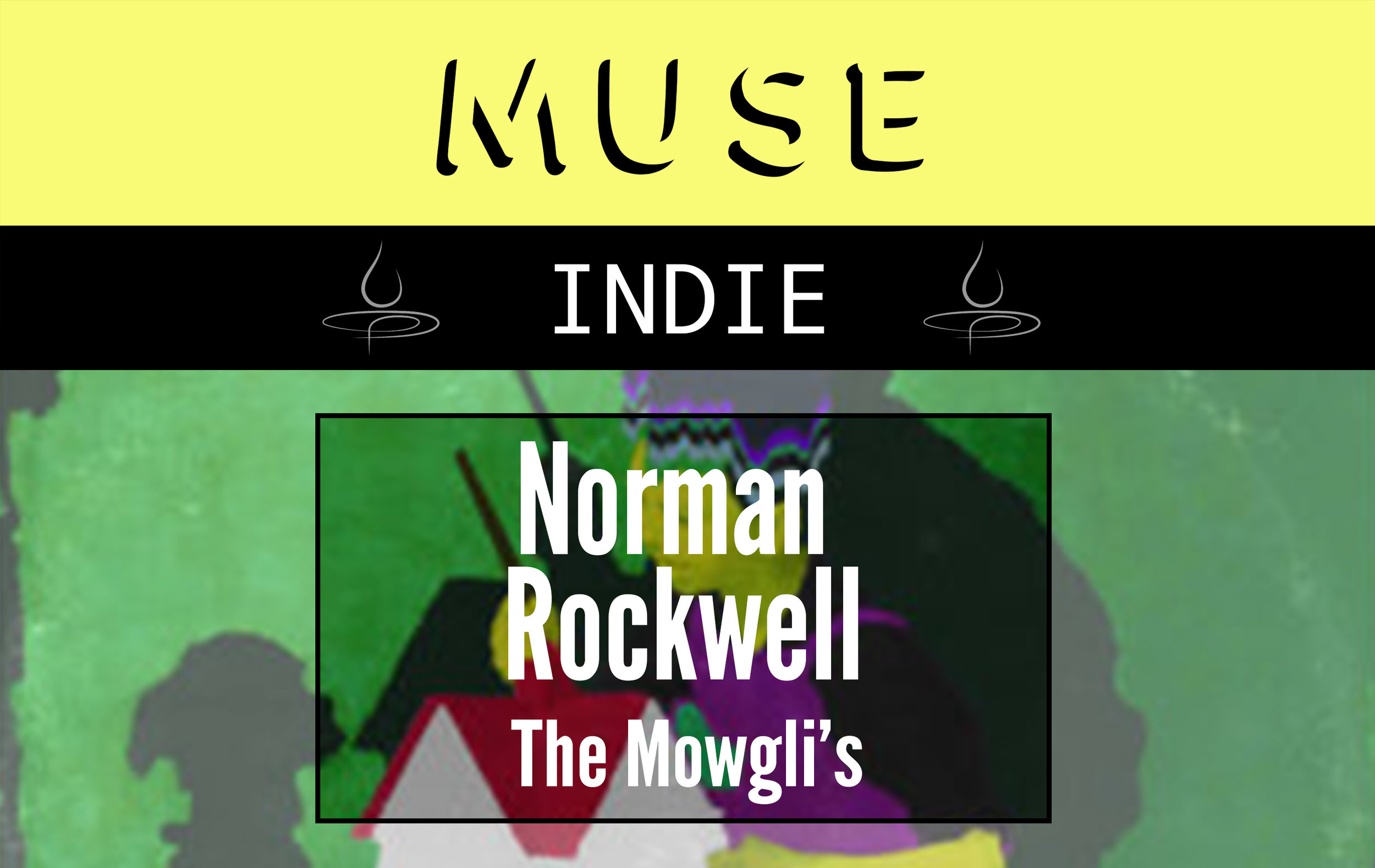MUSE Indie: Norman Rockwell by The Mowgli's
by Carley Eschliman
https://www.youtube.com/watch?v=xG1848lu5OE
Norman Rockwell by The Mowgli's
[CHORUS]
I'm stuck in the paint on the wall in a picture frame
White little house but there's nobody home
Stuck in a life that I didn't want anyway
Lead singer Colin Dieden employs artistic metaphor (drawing upon the title of “Norman Rockwell”) to explore seasons of indecision. In these three lines, Dieden highlights feelings of stagnation—he uses “stuck” twice—and isolation—”nobody home.” The dark seasons described by these lyrics are experienced universally. And, most of the time, we agree with Dieden’s closing lyrics; we “didn’t want,” or, perhaps, didn’t deserve, the seasons we face. These feelings of stagnation, isolation, and indecision are not modern phenomena, however. In the Old Testament’s book of Psalms, a common question is asked: “How long?”1 This question continues to be on our lips-and in our songs—thousands of years later. Sadness and stagnation and isolation and darkness are feelings that cannot be eliminated.
But I don't even know
Where would I go
If I ever got out of here
In the next few lines, Dieden sings more explicitly about the indecision he feels. And, in these statements, he also introduces the possibility of newness—”ever got out of here.” In less-than-ideal seasons, we wonder what our situations could look like under different circumstances. However, as Dieden expresses, it is impossible to know. This lack of knowledge is especially present in the Christian tradition; time and time again in the Bible, only the “how,” not the “what,” of newness is explained. Newness is an experience; according to Jesus, newness is found through being “born again.”2 What that rebirth looks like is still in question.
Paint a new world with the colors I stole
Now, Dieden acts to create newness, calling it a “new world.” Interestingly, he emphasizes the forbidden nature of it; he had to steal in order to create it. This concept of a stolen, new world aligns well with the Christian tradition; we believe not only in the end of evil and the restoration of all things, but we also believe that we don’t deserve these new conditions. And, aligned with the views expressed in prior lyrics, Christians also believe that this new world is outside the realm of our imagination. The act of believing in a stolen, new, unimaginably awesome world has a special term in Christianity: hope. John Piper, a current and prominent Christian thinker, says this about hope:
“Biblical hope not only desires something good for the future—it expects it to happen. And it not only expects it to happen—it is confident that it will happen. There is a moral certainty that the good we expect and desire will be done.” 3
1 Psalm 13:12 John 3:33 What is Hope? by John Piper
About The Mowgli's
Formed in 2010, The Mowgli’s offer a taste of sunny Southern California with their alt-pop repertoire. Two of their top hits, “San Francisco” (2013) and “I’m Good” (2015), feature love-heavy lyrics (“I’m in love with love”) and commentary on the goodness of life (“Living life just like I should // Wouldn’t change it if I could”). In contrast to their generally upbeat style, The Mowgli’s most recent EP “American Feelings” delves into less optimistic territory. Throughout this EP, The Mowgli’s elaborate upon and struggle through feelings of dissatisfaction, stagnation, and uncertainty. From the first track on the EP, “Hard to Love,” the lead singer confesses: “I get the feeling that it's not enough // And I'm afraid you'll find a better love.” The EP’s third song, “Norman Rockwell,” brings these feelings to a peak, welcoming listeners to contemplate what a new life for them might look like.
Discover similar indie songs in the Christian realm with the Claritas MUSE Indie playlist!
[spotify id="spotify:user:1248926785:playlist:2H5rcTrBxtbxbik6mlYBOS" width="800" height="380" /]
